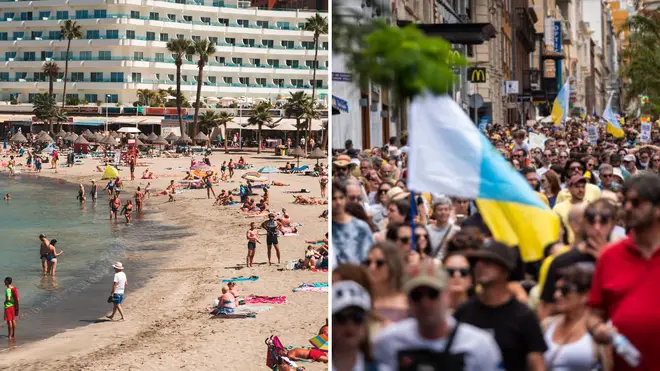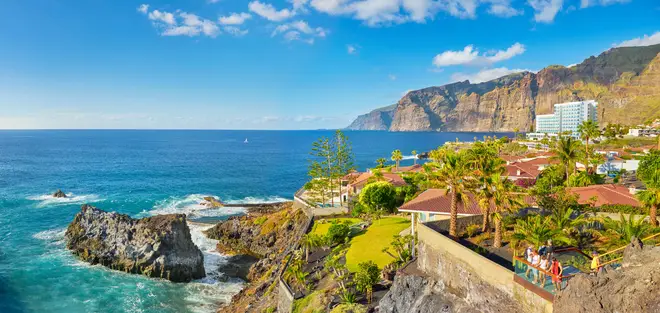
Suella Braverman 10am - 1pm
25 April 2024, 07:11

The deputy mayor of a Spanish tourist hotspot has urged "all-inclusive" holidaymakers to stay away, amid protests from locals against overcrowding.
Tenerife has been rocked by protests recently, with thousands taking to the streets over the weekend to protest against the number of protests visiting the Canary Island.
Activists demanded the government make a change to prevent the number of tourists visiting the holiday hotspot amid soaring rents.
Carlos Tarife, the deputy mayor for Tenerife capital Santa Cruz, said the island doesn't want tourists coming on all-inclusive packages.
He told a local outlet: "Where before there were hotels with 250 beds, today we are in hotels with fewer beds and higher quality.
"I think that's the tourism we need in our land, not the wristband and 'all-inclusive' kind of tourism of 'I stay inside the hotel and do everything inside the hotel'.
"That's why there are other destinations."

It comes after Rosa Dávila, the first female president of Tenerife, proposed charging visitors to access natural spaces.
She hopes this would "modulate" the amount of tourists visiting Tenerife.
"We must analyze the exceptionalities that can be applied in a territory as fragile and limited as ours. What is clear is that Tenerife cannot be a theme park," she said.
Read More: Spanish holiday resort popular with Brits announces pools WILL be open for tourists this summer
"Those who visit us have to value and respect our natural and cultural wealth, our resources, and they have to be clear about the rules for their preservation.
"In addition, there have to be limits to prevent tourism from overflowing."
Earlier this year, Brits heading to Spain this summer were warned to prepare for two new changes that now affect non-EU citizens.
Under the changes, it means British holidaymakers will need to apply for online authorisation before they travel.
The schemes will impact non-EU citizens travelling to Spain as well as multiple other EU countries. If holidaymakers don’t arrive prepared, they could risk being denied entry to the country.
The first change is the EU entry/exit system (EES), which is an automated system for registering travellers from the UK and other non-EU countries each time they cross an EU external border.
Under the first change, it means tourists must scan their passports at an automated self-service kiosk before crossing an EU external border.
This will replace the current system of manually stamping passports.
The new scanners will register the person’s name, type of travel document, biometric data, as well as the date and place of entry and exit.
The system will apply to entry at 25 EU countries, including Spain, Greece, France Germany, Italy and four non-EU countries, Norway, Iceland, Switzerland and Lichtenstein, according to the European Commission.
It will also affect UK border check points.
While the second change under the scheme, the European Travel Information and Authorisation System (ETIAS,) will require travellers to get permission before entering EU countries, which can either be done online or via a mobile app.